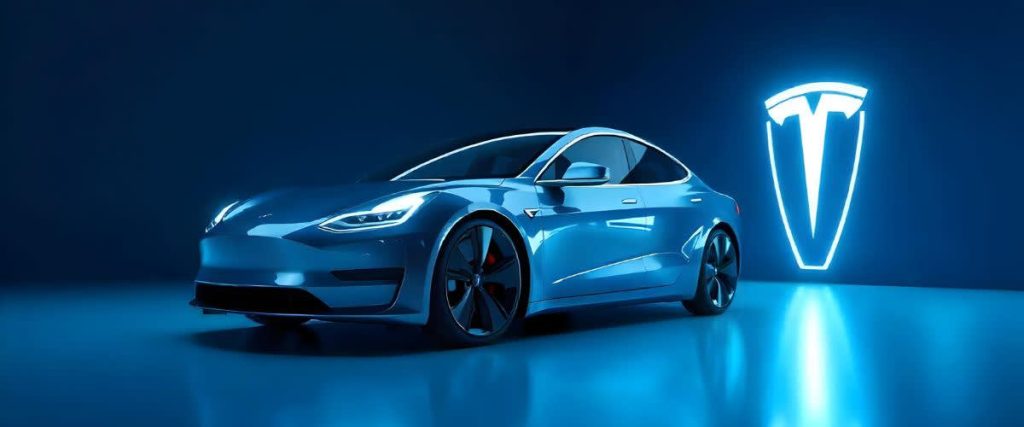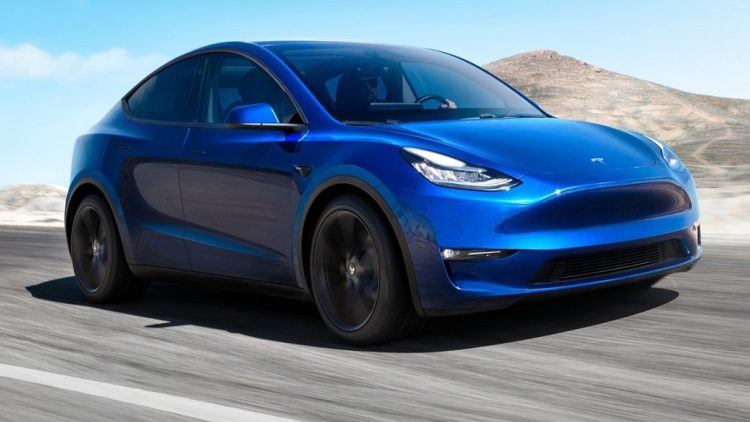The electric vehicle (EV) market has seen explosive growth over the past decade, with one name emerging as the undisputed leader: Tesla. Known for its innovative electric cars, cutting-edge technology, and an ever-expanding global footprint, Tesla has set the bar for what an electric car should be. However, as more traditional automakers and new startups enter the EV market, many are challenging Tesla’s dominance, and the latest contender is a newly released electric SUV that promises to offer a competitive alternative to Tesla’s models.
But the question remains: Can this new electric SUV really compete with Tesla? This article will dive deep into the features, performance, and innovations of this newly launched vehicle, comparing it with Tesla’s offerings and evaluating whether it stands a chance in the fiercely competitive electric SUV segment.
1. Understanding Tesla’s Dominance in the Electric SUV Market
Before assessing the new contender, it’s important to understand why Tesla has become synonymous with electric vehicles. Tesla’s vehicles, particularly its electric SUVs, have set the standard in terms of range, performance, and technology. Let’s break down some of the key factors that contribute to Tesla’s success in this market:
a. Performance and Range
Tesla’s electric SUVs, including the Model X, have a reputation for exceptional performance. The Model X offers incredibly fast acceleration, high-speed capabilities, and an impressive range of over 340 miles on a single charge (depending on the configuration). Its dual motor all-wheel drive system provides power and control, while the Ludicrous Mode offers an unmatched acceleration rate.
For many buyers, the range of an electric vehicle is a critical factor. Tesla has led the way in providing vehicles that can go farther than many competitors on a single charge. The Model X, with its long-range variants, offers an ideal solution for those concerned about the limitations of electric vehicle range.
b. Autopilot and Advanced Technology
Tesla’s Autopilot and Full Self-Driving (FSD) features set it apart from other electric vehicles in the market. Tesla vehicles come with advanced driver-assistance systems (ADAS) that offer semi-autonomous driving capabilities, including lane-keeping assist, adaptive cruise control, summon features, and more. Tesla has also been continually improving these features through over-the-air software updates, making the vehicle smarter and more capable over time.
Tesla’s infotainment system is widely regarded as one of the best in the automotive industry, with a large touchscreen interface, in-car gaming, streaming services, and other features that make it a highly tech-forward experience.
c. Supercharger Network and Charging Infrastructure
One of the biggest advantages Tesla holds over other electric vehicle manufacturers is its Supercharger network. Tesla owners have access to a global network of fast-charging stations, ensuring that long-distance driving is more convenient and accessible. This infrastructure is a crucial aspect of Tesla’s appeal, as it reduces the charging anxiety that many EV owners face, especially when traveling long distances.
2. What Makes the New Electric SUV Competing with Tesla Different?
Now that we understand why Tesla is the leader in the electric SUV market, it’s time to evaluate the newly released electric SUV and see if it truly has what it takes to compete. Let’s look at its key features, performance metrics, and innovations.
a. Design and Aesthetics
Design plays a critical role in the success of an electric vehicle, and automakers are increasingly focusing on creating sleek, futuristic designs that appeal to tech-savvy and environmentally conscious buyers.
The new electric SUV boasts a modern and aerodynamic design, with smooth lines, a spacious interior, and an emphasis on comfort and style. The vehicle is designed with a focus on sustainability, using eco-friendly materials for its interior and exterior. Its clean, futuristic aesthetic gives it a premium feel that competes with Tesla’s high-tech appeal.
While Tesla’s vehicles have their signature minimalist design, this new SUV offers a unique and distinct design language that could appeal to buyers looking for something different.
b. Performance and Range
When it comes to performance, the new electric SUV has some impressive stats to boast. Depending on the configuration, the SUV offers a range of around 300 to 350 miles on a single charge, putting it in direct competition with Tesla’s Model X and Model Y. While it may not match the long-range versions of Tesla’s vehicles, it still offers a competitive range that should meet the needs of most drivers.
In terms of acceleration, the new SUV claims to go from 0 to 60 mph in under 4 seconds, which is comparable to the performance of Tesla’s Model X in its Ludicrous Mode. While not quite as fast as Tesla’s top performance variants, it still offers impressive speed and power for an electric SUV.
Additionally, the new electric SUV features dual-motor all-wheel drive for enhanced traction and performance, making it suitable for both urban and off-road environments. The car’s suspension system has been fine-tuned to ensure a smooth and comfortable ride, which is essential for buyers looking for an SUV that balances power with luxury.
c. Technology and Infotainment
When it comes to technology, the new electric SUV integrates an advanced infotainment system with a large touchscreen interface that offers voice control and smartphone connectivity. The system is designed to provide a seamless, intuitive experience, similar to Tesla’s user-friendly interface. However, it remains to be seen if it can rival Tesla’s system, which is often considered one of the best in the automotive world.
In terms of driver-assistance systems, the new SUV offers a suite of features like adaptive cruise control, lane-keeping assist, and automatic emergency braking. However, it does not yet have the same level of autonomous driving capabilities as Tesla’s Autopilot or Full Self-Driving (FSD) systems. It’s possible that these features could be added in future updates, but at the time of launch, Tesla remains the leader in this category.
d. Charging Infrastructure
While the new electric SUV promises to offer a convenient charging experience, the brand is still building out its charging infrastructure. Tesla’s Supercharger network has been a major advantage for its vehicles, and without a similar global network of fast-charging stations, the new SUV may face challenges in terms of charging convenience, especially for long-distance drivers. The automaker may need to partner with third-party charging networks or develop its own network to compete with Tesla’s seamless charging experience.

3. Pricing and Market Appeal
One area where the new electric SUV has the potential to outperform Tesla is pricing. While Tesla’s electric SUVs are generally priced at a premium, the new SUV may come in at a more affordable price point, making it an attractive option for budget-conscious buyers who are looking to switch to electric but are hesitant to spend top dollar. The more affordable price could appeal to a broader range of consumers, potentially giving the new SUV a competitive edge.
The vehicle’s pricing strategy also positions it to compete with Tesla’s Model Y, which is a more affordable electric SUV in Tesla’s lineup. This pricing advantage may help the new electric SUV capture the attention of those who find Tesla’s vehicles out of reach.
4. Final Thoughts: Can This Electric SUV Compete with Tesla?
The newly released electric SUV certainly has a lot of positive attributes that make it a competitive contender in the market. It offers impressive performance, a sleek design, and an advanced technology suite, all while coming at a more affordable price than Tesla’s vehicles. However, there are still a few areas where the new SUV falls short, particularly in terms of autonomous driving capabilities and charging infrastructure.
While this new vehicle may not yet surpass Tesla in all areas, it provides a strong alternative for those looking for an electric SUV that balances technology, performance, and affordability. As the electric vehicle market continues to grow and evolve, it’s likely that we’ll see more competition for Tesla, with other automakers stepping up their game and offering exciting alternatives. This new electric SUV may not have dethroned Tesla just yet, but it is undoubtedly a strong competitor in the growing EV market, and it will be exciting to see how it develops in the coming years.


































Discussion about this post